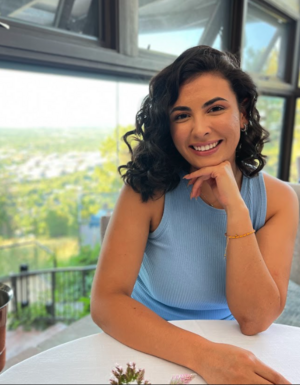
Yesica Chavez earned her Bachelor of Science degrees in Psychology and Ethnic Studies from the University of Colorado - Denver and a Master’s in Global Health Research from Vrije Universiteit in Amsterdam. In 2021, she became a policy fellow at the Keystone Policy Center, co-leading the Next 100 mentorship program to support marginalized and underrepresented groups in outdoor recreation, conservation, and climate-related fields. Yesica also served on the Outdoor Equity Grant Program (OEGP) board, where she was elected chair and helped allocate $1.75 million in grants to increase outdoor access for BIPOC, LGBTQ+, and youth with disabilities. Her research portfolio includes investigating the impacts of climate change on women’s mental health in Assam, India, and the mental well-being of youth in Santa Cruz, Bolivia. Yesica’s contributions earned her a place in the Environmental Fellows Program at Yale School of the Environment, where she will be working with the ClimateWorks Foundation’s Global Intelligence Office.

Wendy Luna Garcia (she/her) is an Energy Justice Research Fellow with Initiative for Energy Justice through the Yale School of the Environment’s Environmental Fellows Program (EFP). In this fellowship position, she has collaborated with community-based energy organizations to develop a white paper on interconnection policy challenges for community-led solar projects in New Mexico. Wendy also provided research assistance on energy finance for North Dakota Native Vote’s Rural Climate and Energy Democracy Campaign to expand tribal knowledge on state energy fund allocations and strategizing how to advocate and allocate more funds towards Rural Electric Cooperatives (RECs) on North Dakotan reservations to contribute to pathways for clean energy adoption. Prior to EFP, Wendy received a master’s degree in Geography from the University of Arizona’s School of Geography, Development, and Environment in 2024 and a bachelor’s degree in International Studies from the University of Wyoming in 2022. Her master’s research examined labor justice and the labor regime of the unconventional oil and gas (UOG) industry in the U.S. Mountain West, where the significant presence of Latine immigrant and non-immigrant workers, women’s labor, and rural communities’ fossil fuel dependence informs future energy policy amidst the energy transition. Outside of research, she has been a community leader with the Wyoming Latina Youth Conference and Center, supporting Latina youth’s entry into higher education through mentorship and STEM exposure, and a field coordinator with the University of Arizona’s School Garden Workshop by promoting outdoor education and supporting with culturally-rooted gardening practices in community gardens and local schools serving low-income communities.

Waku Ken-Opurum (she/her) is currently a Ph.D. candidate in the Architecture-Engineering-Construction Management program at Carnegie Mellon University. She received her B.S. in Management and International Studies with an Economics minor from the Kelley School of Business (Highest Distinction) and her M.S. in Technology Management from Columbia University. Her doctoral research focuses on improving air quality monitoring and data accessibility in the Niger Delta to mitigate the environmental and health impacts of anthropogenic activities, including fossil fuel mining and gas flaring, drawing from her experiences growing up in Port-Harcourt, Nigeria. Ken-Opurum is dedicated to sustainable and equitable urban development, using technology, community engagement, public policy, and art in her work. She is a National GEM Consortium Fellow and has contributed to climate resilience and urban sustainability projects at the Department of Energy’s Argonne National Laboratory and the City of Pittsburgh. Additionally, Ken-Opurum is known for her talent as an artist, with her artworks showcased in numerous group exhibitions and magazines. She has also received the Frank-Ratchye Further Fund from Carnegie Mellon’s STUDIO for Creative Inquiry and was a finalist in the 2024 Three Minute Thesis competition at Carnegie Mellon University. This summer, Ken-Opurum is working as a Yale Environmental Fellow with the Union of Concerned Scientists to conduct comprehensive research and stakeholder interviews for drafting a position statement on the reauthorization of California’s Cap and Trade program, with a focus on environmental and environmental justice concerns.

Jayanna “Jay” Killingsworth, MA (she/her) is a Ph.D. candidate in the Sustainability Education program with Prescott College. Although she was born and raised in central Texas, her love of travel and exploration has allowed her to live in multiple US and European locations. She is focusing her dissertation on exploring capacity building for cultural workers in various creative sectors. As a participant with the Environmental Fellowship Program, she has been placed with the Appalachian Trail Conservancy to assist with messaging and information around accessibility on the Trail via the website and communications channels, explore new accessibility partners, and deepen engagement with hikers with disabilities. Her academic accomplishments are interdisciplinary and have included presenting at conferences around the world and co-authoring multiple articles and a book chapter. In addition to her scholarly work with Prescott College, Jayanna has been the online student trustee for the past two years. She has actively networked and advocated for her constituency during her term, which numbers in the many hundreds. Professionally, for the last 20 years, she has been involved in various roles in the visual arts sector throughout North America. These include consultation, teaching, custom picture framing, gallery owner, manager, and manufacturing representative. Her enduring passion for cultivating creativity and protecting the Earth propels all that she does personally, academically, and professionally.

Samira Umar (she/her/ella) is a first-generation, fourth-year Ph.D. student at the University of Illinois Chicago (UIC) Biological Sciences Department, specializing in Ecology and Evolution. Her dedication to research is evident through her work at the Gonzalez-Meler Stable Isotope Lab under the guidance of Dr. Miquel Gonzalez Meler. Her Ph.D. dissertation delves into the Arctic’s response to global climate change, employing mass spectroscopy and elemental analysis to uncover critical insights about the future of our warming planet. Additionally, she is investigating the influx of microplastics into the Canadian Arctic Archipelago (CAA) and their impact on this once-pristine ecosystem. Graduating with honors and magna cum laude in 2021 with a B.S. in Earth and Environmental Sciences, Samira continued her research on Arctic soils during a summer internship at Argonne National Lab under Dr. Roser Matamala, setting the stage for her Ph.D. dissertation. Samira’s aspirations are as ambitious as her achievements. As an active member of the UIC Bios DEIJ subcommittee, she unearthed a profound passion for environmental justice, especially for underserved communities. Her commitment goes beyond committee work; she actively recruits and mentors first-generation undergraduate and high-school research assistants, fostering the next generation of scientists. This passion propelled her into the prestigious Yale School of Environment 2024 Environmental Fellows Program, where she is interning with the Charles Stewart Mott Foundation to explore renewable energies and nonprofit governance. Samira envisions herself as a future chief scientist for an influential environmental nonprofit like the National Wildlife Federation (NWF) and as a faculty professor at a leading research university. In these roles, she aims to continue shaping young minds and serving as a formidable advocate for environmental and educational equity on a board of trustees.
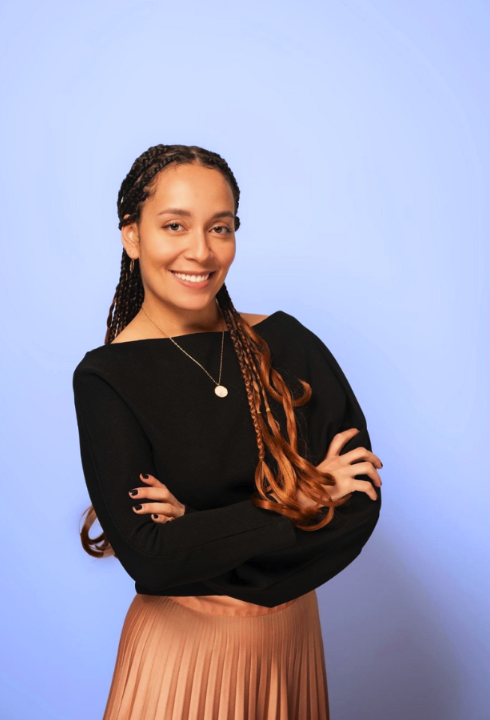
Troy Wynne is a Ph.D. student in the Joint Doctoral Ecology program at San Diego State University and the University of California, Davis. She conducts interdisciplinary research in applied conservation ecology in coastal wetlands and estuarine systems and environmental justice. Her research focuses on the ecological impacts of raw sewage pollution in the Tijuana River Estuary and the broader effects on environmental justice communities within San Diego.Troy grew up in Washington, DC, and received a B.S. in Environmental Science and Policy with a concentration in Wildlife Ecology and Management from the University of Maryland, College Park, in 2023. There, she served on the Environmental Science and Policy Departmental Student Advisory Board. Troy also participated in numerous National Science Foundation Undergraduate Research Experiences (REU) and science communication internships with The Nature Conservancy, NASA Harvest, United States Department of Agriculture (USDA), the Center for Community Engagement, Environmental Justice and Health (CEEJH), UCLA and OceanX.Troy also seeks to decolonize scientific research and advance environmental justice. In addition to her active research, Troy is the Community Manager for Black in Marine Science (BIMS) and an active member in Black Women in Ecology, Evolution, and Marine Science (BWEEMS), advancing inclusion and diversity in a historically non-diverse field. Troy has written and published several articles and blogs advocating for increasing diversity in STEM, including pieces in the Scuba Diving Magazine, STEM News Chronicle, and EndoBlack. Notably, Troy was recently awarded the Community, Equity, Learning, and Persistence Award from the Aquarium of the Pacific. As a 2024 Yale Environmental Fellow, Troy is working at Clean Water Action on the National Campaigns Team, working on various projects, including policy and data analysis to support the Clean Water Act Equity Project and the equitable use of new federal water infrastructure funding.

Tamara Jeffries is a recent graduate of Columbia University (2024) where she received her Masters of Public Administration (MPA) in Environmental Science and Policy. During her time at Columbia, she focused on researching nature based solutions for cities, food systems and agriculture policy, environmental justice, and visual arts. Before Columbia, she attended Case Western Reserve University where she double majored in Environmental Geology & Anthropology, with a minor in Photography. Her focus on environmental justice is personal and professional, aiming to address food security, education, and land rights, particularly within BIPOC communities, through research, advocacy, and storytelling. This summer Tamara is working at WE ACT For Environmental Justice under the organization’s co-founder and executive director Peggy Shepard, and supporting executive staff. She loves being in nature, hiking, running, yoga, baking, oat chai lattes, and learning all things related to the arts and culture.

Sami Maldonado is an Environment & Sustainability graduate student and Transformative Food Systems Fellow at the University of Michigan. Her team’s capstone project aims to advance place-based K-12 food systems education in Michigan with attention to climate change and social justice. Sami is also the Course Coordinator for the University of Michigan’s community-academic partnership course titled “Food Literacy for All.” As a Yale School of Environment Environmental Fellow, Sami engages in trust-based philanthropy alongside the JEDI (Justice, Equity, Diversity, and Inclusion) team at ClimateWorks Foundation. Sami earned her B.S. in Sustainable Agriculture & Food Systems at the University of Minnesota and calls Minneapolis home.

PwintPhyu Nandar is an Environmental Fellow at the Erol Foundation. She carries out research for the foundation’s climate action and regenerative food systems program areas. These issues are near and dear to her heart, as she grew up in Richmond, CA, and studies access to culturally desirable foods. PwintPhyu recently received her Master’s of Environmental Science from Yale School of the Environment this Spring, 2024. Her thesis investigated how Greater New Haven residents access foods that reflect their heritage. She received her bachelor’s degree in Environmental Science with a concentration in Environmental Systems and Society from the University of California, Los Angeles (UCLA) in 2019. Her undergraduate honors thesis on how immigrant households conserve water in Los Angeles earned her highest departmental honors and the Dean’s Prize in Humanities, Arts, and Social Sciences. For the next four years at UCLA, she sought to gain experience within the air quality field. While pursuing these experiences, PwintPhyu participated in an undergraduate research program and was matched with the Gender Water Project. This research project investigated gendered differences in household water use in Los Angeles, a far cry from air quality research. This experience, however, helped PwintPhyu realize her passion for people- and community-centered research. While she still cared about ensuring healthy air quality for overburdened communities, she began to realize her research interests may be different. At Yale School of the Environment, she developed and executed her thesis investigating how Greater New Haven residents access their culturally desirable foods. Over the course of five months, PwintPhyu distributed her survey and conducted ethnographies, where she accompanied residents as they sourced ingredients and showed her how to cook their cultural meal. In addition to her research, PwintPhyu served as the Academic Affairs Representative on the Student Affairs Committee. This summer, she is excited to apply all that she has learned from her studies and experiences to researching Rights of Nature for Erol. In the fall, PwintPhyu will start her PhD in Environmental Studies at the University of California, Santa Cruz. She is thrilled to return to the Bay Area, where her love for the environment began.

Naajia Shakir is a graduate student at the University of Michigan in the School for Environment and Sustainability, specializing in Environmental Justice, and at the Taubman College of Architecture and Urban Planning in the Urban and Regional Planning Program. She is currently an Environmental Fellow at the Environmental Fellows Program (EFP) at the Yale School of Environment, where she works with the Michigan Environmental Justice Coalition and Clear the Air Michigan. She is helping them host town halls about cumulative impacts and how it affects air quality and health within the Southeast Michigan community.
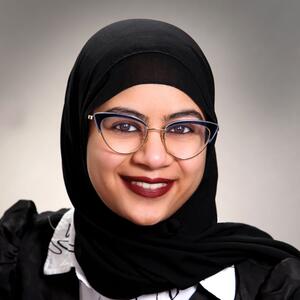
Muram Bacare (she/her/hers) is an Urban and Environmental Policy and Planning Masters candidate at Tufts University. Prior to attending Tufts University, Muram has received her Bachelor of Architecture and Fine Art from the Rhode Island School of Design. Her professional background is in architecture and urban design and her academic interests include urban planning, transportation, as well as environmental and public policy. Muram is currently interning at GRID Alternatives through the Yale Environmental Fellowship. At GRID, Muram is researching the landscape of clean mobility and transportation justice initiatives across the country. She is also supporting the development of a strategic plan for future engagement in shared and micro-mobility programming. In addition, Muram is collaborating with GRID’s Policy and Programs team to execute specific clean mobility-related policy projects. In addition to being a Yale Environmental Fellow, Muram is also a Harvard Kennedy School Rappaport Public Policy Fellow where she is involved in Urban Planning and Design initiatives at the Boston Planning and Development Agency. After graduation Muram hopes to work in city government leading transportation, zoning, policy, and design initiatives that serve communities that stand to benefit.
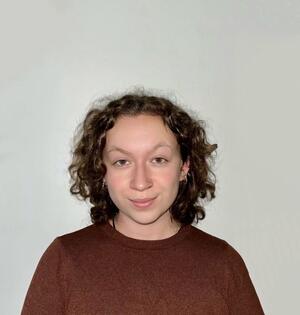
Lily Fillwalk (they/them) is a passionate and driven researcher and student who is interested in science-based urban community agriculture, focusing on environmental justice issues. Fillwalk recently graduated from the Yale University’s School of the Environment with a Master of Environmental Science degree, advised by Dr. Dorceta Taylor. While at Yale, Fillwalk completed a thesis entitled Urban Green Roofs as Carbon Sinks: Carbon Sequestration and the Greening of Brooklyn Grange and Beyond, which focused on soil carbon sequestration in community spaces. Fillwalk also worked as a Research Fellow in the Justice, Equity, Diversity, and Sustainability Initiative at Yale University. Within this laboratory, Fillwalk worked on food access and green infrastructure research within the cities of Boston, Flint, Detroit, West Haven, and Atlanta. Fillwalk is currently working with the Environmental Defense Fund under the Environmental Fellows Program based at Yale School of the Environment. At the Environmental Defense Fund, Fillwalk is a Resilient Infrastructure Fellow, working with grassroots environmental justice organizations to inform a toolkit for a pipeline between communities and the United States Army Corps of Engineers. Previously, Fillwalk attended Pitzer College, part of the Claremont Consortium in Claremont, California, where they received a dual degree in Environmental Science and Studio Art. While at Pitzer College, they completed two theses centered around environmental issues. Fillwalk’s Studio Art Honors thesis was entitled Through the Eyes of the Crow, and was a photography-based project focused on crows as an indicator species of climate change. Their second Environmental Science thesis was entitled Maximizing Urban Green Roof Potential Through the Understanding of Microbiome Composition, and was centered on the soil composition of the Five Borough Complex on Randall’s Island in New York City. Externally, during their undergraduate career, Fillwalk held other environmental research positions. Fillwalk worked with the United States Department of Agriculture in partnership with the World Food Prize Foundation as a Wallace-Carver Fellow. Fillwalk was also awarded a Research Experience for Undergraduates award from the National Science Foundation with the Brooklyn College Urban Environment and Ecology program. Within this position, Fillwalk worked on their undergraduate thesis. Fillwalk will soon enter a Ph.D. program at Rutgers University in Ecology and Evolution, advised by Dr. Jason Grabosky, where they will continue their work combining community engagement and soil health.

Korrey E. Monroe holds a Master of Public Health in Occupational and Environmental Epidemiology from the University of Michigan. He worked as a research assistant on the National Science Foundation’s Smart and Connected Communities project, focusing on analyzing energy justice in residential spaces. In addition, he served as a project manager in Dr. Lenette M. Jones’ lab, where he addressed hypertension disparities among Black women in Southeastern Detroit. Before pursuing his graduate studies, Monroe obtained a Bachelor of Science in Public Health Education with a minor in African American Studies from the University of North Carolina at Greensboro. Currently, Korrey is working at CLEARCorps Detroit this summer, aiming to address childhood lead poisoning and other environmental hazards affecting the community’s health and safety. His efforts involve creating community networks for exchanging information and developing plans for future community coalitions. With a strong interest in the intersectionality of environmental justice and public health issues, Monroe aims to utilize his experiences to support marginalized communities and address environmental health disparities.
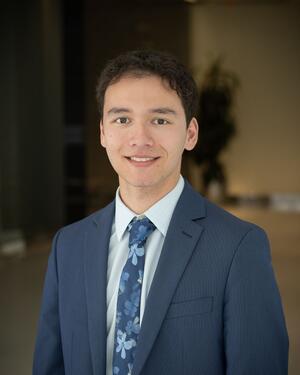
Kai Tran is a graduate student pursuing a Master of Environmental Management at Duke University’s Nicholas School of the Environment, with a primary concentration in Community Engagement & Environmental Justice and a secondary concentration in Terrestrial and Freshwater Environments. Before graduate school, Kai earned a B.S. in Environmental Management & Protection at California Polytechnic State University San Luis Obispo, with two minors in Political Science and Law & Society.Outside of academics, Kai has grown his professional experience in environmental advocacy, justice, and community engagement. Much of this work began with Kai’s involvement with the San Luis Obispo Chapter of the Sunrise Movement, where he served as a Core Team Member supporting the chapter’s operations, event planning, action participation, and coordination amongst other community organizations. Following this his participation with the Sunrise Movement, Kai began to work with the Northern Chumash Tribal Council, the nominators of the Chumash Heritage National Marine Sanctuary: the first indigenously proposed and led national marine sanctuary. Through Earth Echo International, Kai served as an OceanEcho 30x30 Fellow where he developed a campaign plan to reach college-aged youth in the local community, which included educational seminars and dissemination of outreach materials in support of the Chumash Heritage National Marine Sanctuary. Kai has continued his involvement with EarthEcho International through his service as a Youth Leadership Councilmember, where he works to progress their mission to advance youth involvement in ocean conservation. In addition to Kai’s involvement with EarthEcho, he has worked for the Wildland Urban Institute to research land use planning documents in California to analyze community-level fire resilience. More recently, Kai worked for the Center for Rural Enterprise and Environmental Justice (CREEJ) to research wastewater infrastructure in the state of Idaho to support CREEJ’s national sanitation database.Kai’s placement through the Environmental Fellows Program is with the William Penn Foundation in Philadelphia, Pennsylvania for their Environment & Public Spaces Program. Kai is working to support the Foundation’s outreach efforts through database development and grantee analysis in accordance with the Foundation’s Strategy Plan relaunch.

Josh Heupel (he/him) is a Master in Public Affairs candidate specializing in domestic environmental policy at Princeton University’s School of Public and International Affairs. He holds a B.S. in Agricultural Business/Economics and a B.A. in Political Science from California State University-Fresno, where he graduated in 2023. Raised on a small family farm in California’s Central Valley, Josh developed a deep understanding of the environmental and economic challenges faced by his rural community. This upbringing instilled in him a profound commitment to domestic climate policy, particularly focusing on issues affecting migrant farmworker communities, food security, single-industry towns, and the agricultural response to climate change and water conservation law. Currently, Heupel is a Yale Environmental Fellow working with Freshwater Future, a non-profit that works to safeguard the waters of the Great Lakes region. As a fellow, he researches water privatization and affordability for underserved communities within the eight Great Lake states. Looking ahead, Josh is eager to further his academic pursuits in environmental policy and remains committed to shaping resilient food, water, and agricultural policies that secure a sustainable future for rural communities nationwide, continuing the legacy of his family’s farm.

Josephine Galdamez is a dedicated public administration professional with a strong foundation in data analysis, environmental justice, and community engagement. Josephine has her masters in Public Administration and Certificate of Advanced Studies in Data Analysis for Public Policy at the Maxwell School of Citizenship and Public Affairs in Syracuse, NY. She is a Yale Environmental Fellow working with Emerald Cities Collaborative and serves as the Intergovernmental Affairs Coordinator at the Mayor’s Office of the City of Syracuse. Her current role as a Yale Environmental Fellow with Emerald Cities Collaborative involves maximizing federal funds through environmental policies such as the Inflation Reduction Act for local governments and community-based organizations. Josephine is providing technical assistance to Cleveland Owns in turning houses of worship into climate resilience hubs where community members can meet year-round, and the hub can serve in the event of a disruption or recovery.
Her background includes eviction defense, where she worked with a team of attorneys serving people with disabilities and secured $10,000 in grant funding for tenant support with Neighborhood Legal Services of Los Angeles County. Then, Josephine transitioned to her passion for working on the intersectionality of the environment and marginalized communities. She provided policy recommendations on the two laborer groups most at risk of heat illness and death in NY state wireless emergency texts in different languages during a natural hazard supported by data and research as the Environmental Justice, Data Analysis, and GIS Science Intern at the Office of Attorney General New York.

Isaac Carroo is pursuing a joint Master of Environmental Management from Yale School of the Environment and a Master of Arts in Religion from Yale Divinity School. He is focused on removing barriers for historically disenfranchised groups to steward lands and waters through social enterprise models, and he specifically focuses on food systems and circular economies. He has past work experience across the United States and Aotearoa, New Zealand, working in social enterprise and management consulting. He holds Bachelor’s degrees in Religion and Ecology & Evolutionary Biology from Rice University. Isaac is placed with the Rhode Island Division of Marine Fisheries through the Environmental Fellows Program. Isaac is a Jamaican-American from Washington, D.C.

Hauwa Abbas, originally from Michigan, is a dedicated advocate for social impact and community development, currently pursuing her Master’s in Public Administration and Public Policy at American University and is a 2024 Fellow at the Yale School of Environment, with a placement at the Environment Justice Coalition in Detroit. She holds a Bachelor of Arts in Advertising Management and Media with a minor in Public Relations from Michigan State University, where she contributed to developing an app for Flint residents to access healthier food choices amid the water crisis. Hauwa has served as Deputy Campaign Manager for State Representative Abraham Aiyash and worked on Michigan’s Clean Slate Program, assisting formerly incarcerated individuals with expungements. As the founder and director of The Halimah Project, she has spent seven years mentoring Muslim refugee youth in mid-Michigan. Her passion for social impact extends beyond her nonprofit work into her academic pursuits, reflecting her commitment to creating a more equitable and inclusive society. In her free time, she enjoys long walks, cooking, DIY crafts, attending Islamic lectures, gym sessions, listening to podcasts, and reading mystery novels. Hauwa’s exceptional leadership and dedication to public service continue to inspire others and uplift marginalized communities.

Esaac Mazengia is an incoming PhD student in the Environmental Studies department at University of California- Santa Cruz. Esaac recently completed his Master of Environmental Science at the Yale School of the Environment under the mentorship of Dr. Dorceta Taylor. Before his master’s degree, Esaac completed his Bachelor of Science in Environmental Science and Terrestrial Resource Management from the University of Washington and worked for a year in Hawai’i Volcanoes National Park as a vegetation technician. A current fellow with the National Science Foundation Graduate Research Program and the University of California Cota-Robles fellowship, Esaac researches the intersection of environmental justice, outdoor recreation, and African immigrant community health and wellbeing. His work explores the creative ways in which to address existing equity gaps and examines how greenspace equity, more broadly, can act as a mechanism through which to improve socio-ecological community climate resilience on the way to a just transition. This summer, as a member of the Yale Environmental Fellowship Program, Esaac will be working with the philanthropy Justice Outside to help support grantees within their Liberated Paths grantmaking program. When not researching outdoor recreation, Esaac loves to participate in a variety of outdoor recreation activities himself, including hiking, kayaking, nature photography, and camping with friends and family.

Dionna Brown (she/her) is a dedicated environmental advocate and scholar, currently pursuing a Master’s in Public Health at Michigan State University, with plans to apply to law school in 2025. Dionna’s passion for environmental justice is deeply rooted in her experiences and academic journey. Growing up in Flint, Michigan, during the Flint Water Crisis, she witnessed firsthand the devastating impacts of environmental neglect on marginalized communities. This pivotal experience ignited her commitment to advocating for clean water and sustainable, equitable environments for all. Dionna graduated from Wayne State University in May 2024 with a Master’s degree in Sociology, following her Bachelor’s degree in Sociology with a minor in Afro-American Studies from Howard University in 2021. Her academic focus on environmental justice, climate justice, and public health has equipped her with a comprehensive understanding of the intricate social, political, and economic factors underlying environmental issues.As a Yale Environmental Fellows Program 2024 cohort member, Dionna’s placement is at We the People of Detroit. She is also a Young Climate Leader of Color 2023 alum and an inaugural MI Healthy Climate Corps member. Dionna has honed her advocacy, community organizing, and policy analysis skills through these programs. Her leadership roles, particularly as the National Director of Youth Environmental Justice Programs at Young, Gifted & Green, have allowed her to engage and educate youth about environmental inequalities affecting Black and Brown communities. In this role, she spearheaded the Youth Environmental Justice Council and collaborated on numerous initiatives to address environmental injustices.

Kyle Dahilig, a PhD student in Ecology at the University of California, Davis, is an interdisciplinary-driven researcher interested in environmental governance structures and partnerships as Small Island Developing States (SIDS) seek to achieve the United Nations Sustainable Development Goals (SDGs). As a Yale Environmental Fellow, he interned with the Center for Biological Diversity to review and analyze potential pathways for New Mexico’s just transition towards renewable energy. In this role, he conducted a literature review for policy memos related to resource access, economic impact and environmental justice. As a first-generation college graduate, Dahilig received his Bachelor of Science in integrative biology and minor in crop and environmental protection science from the University of Guam. Within his community, he served as the committee chairman on environment, utilities and transportation in the Guam Youth Congress, focusing on island waste management, sustainability and renewable energy investments through policy writing and public hearing advocacy. As the Guam Green Growth Youth Ambassador, he worked with government agencies, nonprofit organizations and academic institutions to develop a living policy framework for Guam that aligns with the United Nations Sustainable Development Goals. In this role, he negotiated opportunities for youth development programs and identified services and gaps within the community’s programs that impact natural resources. With Dahilig’s commitment to ecological research, environmental stewardship and community engagement, he has earned local and national recognition such as the National Science Foundation: Graduate Research Fellowship, Udall Foundation Scholarship, Doris Duke Conservation Scholarship, the Walt Disney–Asian American and Native American Pacific Islander–Serving Institution Scholarship and more. His overarching goal is to support biodiversity while promoting sustainable development and collaborative decision-making. He is motivated to serve as a researcher for government programs dedicated to supporting under-resourced communities, communicating with decision-makers on elevating the relationship between biodiversity, development and environmental justice and opening doors for those after him.
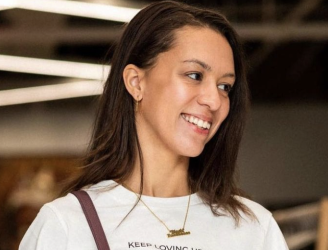
Frances Crable is a 5th-year Ph.D. candidate in Ecology and Evolution at the University of Illinois at Chicago, within the Gonzalez-Meler Stable Isotope Lab and affiliated with The Norwegian Institute for Water Research, under the mentorship of Dr. Gonzalez-Meler and Dr. Andrew King. Since completing her B.S. in Biology at UIC in 2019, where she focused on wetland nitrogen cycles and coral reef fish behavior, she has directed her research toward the biogeochemistry of the Arctic Ocean and its climate change impacts, particularly within the Canadian Arctic. Her work, which has earned her multiple fellowships like the NSF Bridge to the Doctorate and the UIC Pipeline to Inclusive Faculty, along with NASA and Illinois Space Grant Consortium funding, delves into the effects of seasonal variations, increased freshwater input, and climate change on phytoplankton productivity through lab experiments and remote sensing data analysis. As a mentor through the UIC DuSables Program to incoming Black STEM undergraduates, Frances is dedicated to inclusion and representation in science, complemented by her involvement in science communication through platforms like TedxChicago, Shedd Aquarium, and Argonne National Laboratory, and as a guest scientist on Hurtigruten cruise ships. Her commitment extends to environmental advocacy with a recent internship at the National Wildlife Foundation (NWF) through Yale’s Environmental Fellows program, aiding in the Ohio River Restoration campaign. Alongside her professional endeavors, Frances is an active member of the BlackGirlEnvironmentalist community and engages with a broader audience on conservation and scientific discovery via social media @phytofran. Post-Ph.D., Frances aims to secure a postdoc focusing on freshwater phytoplankton and pollution, blending her academic pursuits with nonprofit work to create a tangible environmental impact.
Carlina Arango (she/her) is a Master of Science and a Master of Urban and Regional Planning student at the University of Michigan. She has a B.A. in Anthropology and Spanish with an Environmental Studies concentration from Grinnell College. As part of the Environmental Fellows Program, she is working with Better Block Foundation, a community development organization focused on placemaking and grassroots urban design. As a Fellow, she is developing the organization’s first comprehensive sustainability plan. Carlina’s professional and academic experiences include environmental justice, urban development, and food systems. Through working on and studying these issues, she hopes to generate radical planning frameworks to bring about life-promoting interventions for cities, especially in the Midwest region she calls home. Outside of work and school, Carlina enjoys staying active through yoga and capoeira and spending time with her tuxedo kitty, Chico.

Bryce Puesta Takenaka, MPH, CPH (he/him) is a second-generation Southeast Asian immigrant, queer man, social and spatial epidemiologist-in-training. He is currently a third-year PhD student in the Department of Social and Behavioral Sciences at the Yale School of Public Health and a T32 Research Fellow at the Center for Interdisciplinary Research on AIDS.Bryce is a health equity scholar who focuses on intersectional and participatory approaches to LGBTQ+ health, spatial justice, and embodied health impacts from structural violence and other manifestations of oppression. He engages in critical geography, Black feminism, and decolonial praxis to advance procedural and epistemic justice-oriented placemaking of embodied health outcomes to inform responsible storytelling. A core aim of Bryce’s scholarship is to facilitate permanent systems that center localized health and place-making decisions and is deeply committed to cultivating anti-colonial and abolitionist futures for Black and Brown communities.Concurrently with his PhD training, Bryce is also pursuing a Master of Art in History of Science and Medicine at Yale, and a Master of Science in Geographic Information Systems at Johns Hopkins University. He holds a Master of Public Health (MPH) in Epidemiology from the College for Public Health and Social Justice at Saint Louis University and a Bachelor of Science in Public Health from Lindenwood University.

Brandy Le is a social scientist and qualitative researcher. She is fascinated by the relationships between people, the cities we live in, and the ways that we understand and navigate spatial relationships. She holds a BA in International Studies from the University of Oklahoma where she researched the relationship between speculative urbanization and ecological degradation in Vietnam. As of May 2024, she obtained her MS in Anthropology through analyzing how Vietnamese immigrants navigate race and class relationships in predominantly white geographies by means of labor and entrepreneurship in the Midwest. Brandy also co-managed and facilitated a year long mixed method study to better understand how marginalized university students’ usage, barriers to access, and future aspirations for greenspace. Brandy has expertise in mixed method project planning, qualitative data analysis, research design and management, and writing. As a 2024 Yale Environmental Fellow, she is working closely alongside the Environmental Transformation Movement of Flint and the St. John Street Historical Committee to design interpretive signage to order the history, legacy, and contributions of the St. John Street community in Flint, MI.
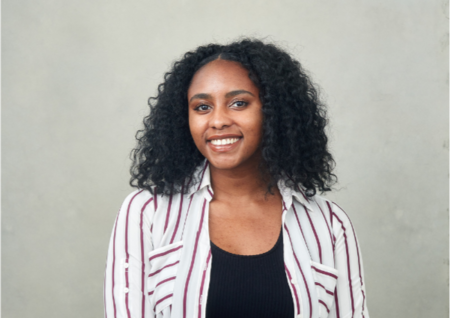

Bennett Abayomi Olupo, a young professional, is deeply dedicated to sustainable community development. His vision is to create an equitable and healthy environment, and he sees initiatives promoting food sovereignty as a powerful means to achieve this future. He holds two Bachelor degrees in Biology and Spanish. Bennett also holds a Masters from the Yale School of the Environment and Loyola Marymount University. His Environmental Fellowship Program placement is with the Gardens of Golden Gate Park through the Environmental Fellows Program offered by Dr. Taylor’s Justice, Equity, Diversity, and Sustainability Initiative (JEDSI) lab at YSE.

Ayesha Ahmed is a doctoral candidate in the Department of Earth & Planetary Sciences at Yale University broadly exploring natural carbon removal for the purpose of developing climate change solutions, specifically focusing on the carbon removal potential of enhanced weathering of certain silicate minerals. After completing her undergraduate degrees in Chemistry and Environmental Science at Santa Clara University, Ayesha focused on soil carbon storage in deep regolith zones while completing her masters in Soils and Biogeochemistry and University of California, Davis. She expanded her repertoire of laboratory and field experience at University of Illinois, Urbana-Champaign, where she was instrumental in launching a large-scale field trial to gather high resolution soil nitrogen flux measurements. As part of being a 2024 Yale Environmental Fellow, Ayesha is using radiocarbon analysis at the Yale School of Environment and Yale Analytical and Stable Isotope Center to quantify soil organic carbon turnover rates in agricultural soils. Ayesha aims to continue research in optimizing natural carbon removal while also exploring how climate change solutions intersect with climate inequity and historical environmental injustices.
Aneika Perez is an incoming fourth-year PhD student in the geography joint doctoral program at San Diego State University and UC Santa Barbara. She holds a Master’s degree in Social Science from Humboldt State and a Bachelor’s in Geography with a minor in Environmental Science & Policy from Cal State Long Beach. Aneika’s Environmental Fellowship Program placement is with the Chicago Environmental Justice Network where she is monitoring hotspots and sacrifice zones from nearby sources of pollution throughout the city.

Andrew Palacios graduated from the University of California, Santa Barbara (UCSB) in 2023, earning dual Bachelor of Science degrees in Zoology and Psychological & Brain Sciences. Andrew is currently pursuing a Master of Environmental Science and Management at the UCSB Bren School of Environmental Science & Management. His specializations in Conservation Planning and Water Resources Management is supported by coursework in Advanced Data Analysis, GIS, Monitoring and Evaluation, Pollution Risk Management, and Environmental Politics & Policy. As part of the 2024 Cohort of Yale Environmental Fellows, Andrew is placed in an internship with the Native Land Conservancy where he contributes to the crucial work of preserving and restoring healthy landscapes through indigenous and traditional knowledge.
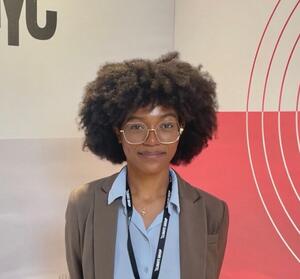
Aminah Taariq-Sidibe is a recent graduate of Columbia University, where she earned an M.Sc. in Strategic Communications with a focus in science and sustainability communications. She holds a B.S. in Environmental and Sustainability Sciences (concentration in Policy and Governance) and a B.S. in Communications (concentration in Persuasion and Social Influence) from Cornell University. During her Yale Environmental Fellowship, Aminah worked with EARTHDAY.ORG to report on the lobbying efforts and behind-the-scenes activities of the plastic and petroleum industries and their effort to influence national and international policies.
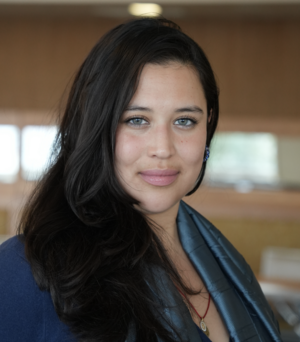
Abby Jordan is an Environmental Fellow at the Justice, Equity, Diversity, and Sustainability Initiative (JEDSI) Lab at the Yale School of the Environment. She is originally from Brighton Beach, Brooklyn, and is the proud daughter of immigrants from El Salvador. She has several years of public service work experience in immigration rights, educational management, and environmental science education. Abby is passionate about helping educate and build resilient coastal communities, having lived through the devastation of Hurricane Sandy’s storm surge in 2012 during her undergraduate years at CUNY Hunter College. She is an environmental science educator with the National Wildlife Federation’s Resilient Schools and Communities (RiSC) program. She recently earned her Master of Public Administration in Environmental Science and Policy at Columbia University’s School of International and Public Affairs (SIPA) and Climate School in May 2024 as a SIPA Environmental Fellow. She is a free diver, an avid open-water swimmer, and loves swimming in the ocean year-round with the Coney Island Brighton Beach Open Water Swimmers (CIBBOWS), where she serves as an advisory board member.

